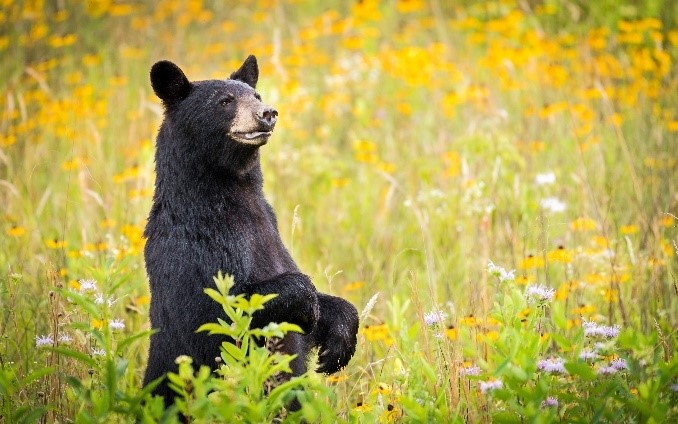Submitted
Springtime is bear aware time! Our furry friends are out of their dens looking for food now that warmer weather has arrived, so be sure to keep watch when outdoors and ensure attractants aren’t accessible.
There are black bears in most parts of the province. Although they are frequently seen in the forests of northern Saskatchewan, their range also includes the aspen parkland, Touchwood Hills, the Qu’Appelle Valley and the South Saskatchewan River Valley.
Black bears are intelligent animals driven by their search for food and the need to put on fat. However, bears will depart an area if they cannot find food. By keeping areas like yards and campsites free of attractants like pet food, trash, bird feeders and dirty barbecues, you can reduce the likelihood of human-bear conflict.
To enhance public safety and reduce the creation of habituated and food conditioned bears, it is against the law to feed bears (as well as wolves, cougars and coyotes). Hunters and trappers are exempt from this law when operating under a license (i.e. when legally baiting).
Reducing or removing attractants is a crucial step in keeping yourself and your property safe in bear country. You can bear-proof your yard or campsite by:
- Storing garbage in a secure building or buy a bear-resistant container. Only put the bin out on the morning of collection. Wash all recycling items and regularly clean garbage or recycling bins.
- Ensuring pet food is stored where it is not accessible to wildlife. Only use bird feeders in the winter while bears hibernate.
- Not adding fish, meat, fat, oils, unrinsed eggshells or any cooked food to backyard compost.
- Properly cleaning and storing barbecue grills after each use.
- Not cooking, eating or storing food in your tent or tent trailer. Store food in air-tight containers in the trunk of your vehicle.
- Placing all garbage in the containers provided. Do not burn or bury scraps.
- Cleaning fish only at designated fish-cleaning stations.
- Keeping your pet on a leash while hiking.
Call 911 if a bear or any other wildlife poses an immediate risk to people’s safety. To report an encounter with aggressive wildlife call the Turn in Poachers and Polluters (TIPP) line at 1-800-667-7561. Concerns regarding bears or other nuisance wildlife can be reported to the Ministry of Environment by calling 1-800-567-4224 or email center.inquiry@gov.sk.ca.
Additional information about bears and bear safety is available at www.saskatchewan.ca/wildlife-issues.


